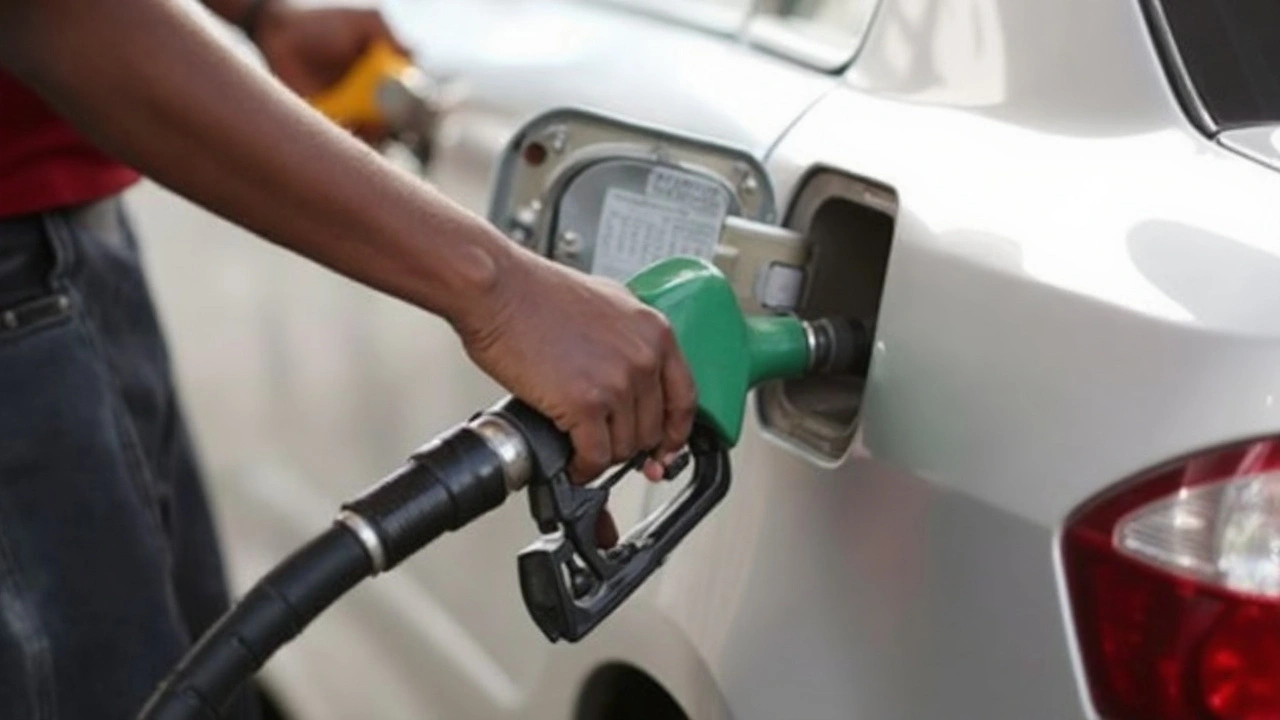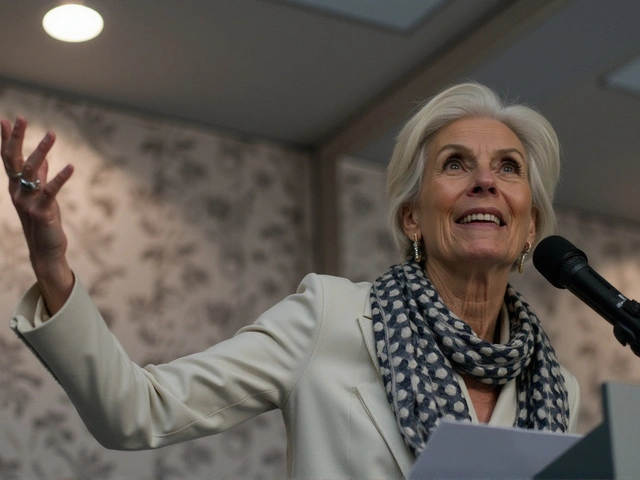New EPRA Fuel Price Changes Shake Up Kenyan Market
If you were hoping for stable fuel prices this month, you’re in for a surprise. The Energy and Petroleum Regulatory Authority (EPRA) has just rolled out new fuel prices that are anything but flat—the second month in a row that’s seen adjustments rather than a freeze. Super petrol is now pricier, with a jump of Ksh2.69 per litre, while diesel and kerosene prices dropped by Ksh1.95 and Ksh2.06 per litre respectively.
In Nairobi, expect to hand over Ksh177.32 for every litre of super petrol at the pump. Diesel users will get some relief with a new rate of Ksh162.91 per litre, and kerosene—often used for lighting and cooking in many homes—now costs Ksh146.93 per litre. These numbers might sound small, but as any driver or business owner will tell you, even minor tweaks can ripple through family budgets and business margins.
Global Trends, Local Tax Changes Drive the Shift
These adjustments didn’t come out of nowhere. EPRA gives a nod to global oil prices, which have seesawed lately under pressure from market uncertainty and production cuts by major exporters. But there’s another key factor: fuel prices are also shaped by changes in local tax rules and excise duties—those indirect taxes you pay at the pump, which are now indexed to inflation. This means the government tweaks them each year based on rising costs of living, so every shilling counts more than ever.
You’re probably wondering: why the mixed bag, with petrol up and diesel and kerosene down? Super petrol, often tied to private transport and commercial activities, has been especially sensitive to global market spikes. Meanwhile, diesel, crucial for transport and agriculture, and kerosene, relied on by many rural households, have benefited a bit from slight softening in the cost of imports.
For many Kenyans, these changes bring mixed feelings. Higher petrol prices could bump up the cost of matatu fares or delivery services. On the flip side, those who depend on diesel engines or kerosene for home energy might catch a small break.
It’s a vivid reminder that when it comes to energy policy, every tweak—whether an increase or a decrease—carries its own ripple effect, hitting each sector a little differently. And with every monthly review, Kenyans hold their breath, waiting to see how the numbers will shuffle next.







Sienna Ficken
Oh fantastic, just what the Kenyan streets were begging for – another sweet little hike on petrol. Because nothing says "progress" like watching the numbers on the pump climb faster than a matatu in rush hour. The world’s oil market can be a rollercoaster, but EPRA apparently decided to give us a front‑row seat with a price tag that makes you rethink every trip to the shop.
At least diesel and kerosene got a discount, so we can console ourselves with a little "silver lining" while our wallets do the disappearing act.
Zac Death
Alright folks, let’s take a moment to really soak in what these numbers mean for everyday life in Kenya – you know, beyond the headline that petrol went up and diesel went down. First off, the Ksh2.69 increase per litre of super‑petrol might look like a drop in the ocean, but when you multiply that by the countless kilometres driven by taxis, delivery bikes and private cars, you end up with a substantial hit to operating costs. That, in turn, inevitably trickles down to passengers who might see fare bumps on their next matatu ride, and businesses that rely on road transport could see margins squeezed tighter than a fresh‑squeezed orange.
On the flip side, the diesel price cut of Ksh1.95 per litre is a breath of fresh air for farmers and logistics firms; their engines, powered by diesel, now run a little cheaper, which could translate into lower costs for agricultural inputs and goods movement. Likewise, the kerosene discount helps households that still depend on it for cooking and lighting, especially in more remote areas where electricity isn’t reliable.
It’s also worth noting how the global oil price volatility, exacerbated by geopolitical tensions and production cuts, feeds directly into these local adjustments – EPRA is basically a conduit for those global swings, filtered through Kenya’s tax and excise frameworks. The fact that taxes are indexed to inflation means that even if global prices stabilize, the local price could still rise because the tax component flexes upward each year.
All of this underscores a fundamental truth: fuel pricing isn’t just about a number on a sign; it’s a complex interplay of global markets, domestic fiscal policy, and the everyday realities of commuters, farmers, and families.
So while some may cheer the diesel and kerosene reductions, others will rightly grumble about the petrol hike – and that’s the mixed‑bag reality of energy economics in a developing country.
Bottom line: keep an eye on the fuel stations, budget a little extra for petrol, and maybe consider alternative transport options if the price hikes become a persistent trend.
Lizzie Fournier
Hey everyone, just wanted to point out that while the numbers look small, they add up fast, especially for folks who rely on fuel daily. A few shillings more per litre might not sting at the pump, but over a month it can mean an extra few hundred Ksh out of the budget. On the bright side, the diesel and kerosene drops are definitely a win for the agriculture sector and rural households.
It’s all about balance – price changes ripple through transport costs, food prices, and even household lighting expenses.
JAN SAE
Exactly, Lizzie! The shift in diesel pricing, you see, can directly influence the cost structure of farming operations, especially those that depend on mechanized equipment; therefore, a reduction here is nothing short of a strategic boost, and it may even lower food prices downstream. Moreover, the kerosene discount serves as a vital relief for off‑grid households, ensuring energy affordability remains within reach; this, in turn, supports community stability and economic resilience.
Steve Dunkerley
From a policy analysis perspective, the nuanced approach EPRA adopted reflects a calibrated response to both external market pressures and internal fiscal dynamics. By decoupling diesel and kerosene from the upward trajectory of global crude, the regulator mitigates adverse macro‑economic spillovers on key sectors such as agriculture and domestic energy consumption. Simultaneously, the incremental hike in super‑petrol aligns with the elasticity considerations inherent to private transport demand, thereby preserving revenue streams without disproportionately burdening lower‑income commuters.
Jasmine Hinds
Yo team! 🎉 This price shuffle is a reminder to keep an eye on your fuel budget and maybe think about carpooling or using a bike when you can. Little changes add up, but we can adapt! 😎
Madison Neal
Totally agree with Jasmine – the incremental adjustments, while seemingly modest, can have a compounding effect on operational expenditure for small businesses. By optimizing route efficiency and exploring alternative fuel options where feasible, stakeholders can cushion the impact of these price oscillations.
John Crulz
It's interesting how EPRA ties fuel pricing to both global oil benchmarks and domestic inflation metrics, creating a dual‑sensitivity mechanism that reflects the interconnectedness of external commodity markets and internal economic policy. This hybrid model aims to balance revenue needs with consumer protection, though the real‑world impact often depends on sector‑specific demand elasticity.
Anita Drake
From a cultural standpoint, these shifts affect daily routines beyond just the economics – think about the evening meals cooked over kerosene stoves or the school buses that rely on diesel. When fuel becomes more affordable, it can ease the strain on families, especially in rural communities where alternative energy sources are limited.
Eduardo Lopez
One cannot help but marvel at the blatant hypocrisy embedded within these so‑called "adjustments" – a price hike on premium petrol while offering token relief on diesel and kerosene. It's a theatrical display of fiscal juggling that pretends to protect the vulnerable yet silently pads the coffers of the powerful. The dramatics are palpable, but the underlying injustice remains stark.
Nancy Perez de Lezama
These price updates certainly warrant careful budgeting.
Matt Heitz
Honestly, it's a disgrace that we keep letting foreign oil magnates dictate the terms of our local economies while our own policymakers hide behind vague tax indices. The diesel cut is just a smokescreen, a token gesture to placate the agricultural lobby, but the real beneficiaries are the multinational corporations that continue to profit off Kenyan soil.
Susan Mark
I see where Matt is coming from, though it's also worth noting that any relief on diesel can provide tangible benefits to farmers who already operate on thin margins. Perhaps a balanced view acknowledges both the broader systemic issues and the immediate advantages for certain sectors.
Jason Jennings
These adjustments are just another way for the government to mess with our wallets; not surprised.